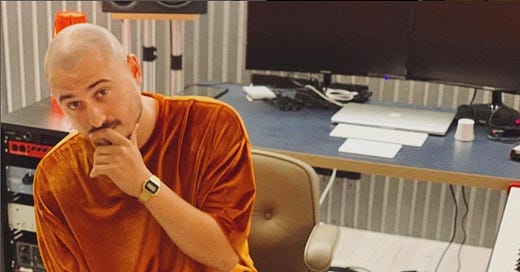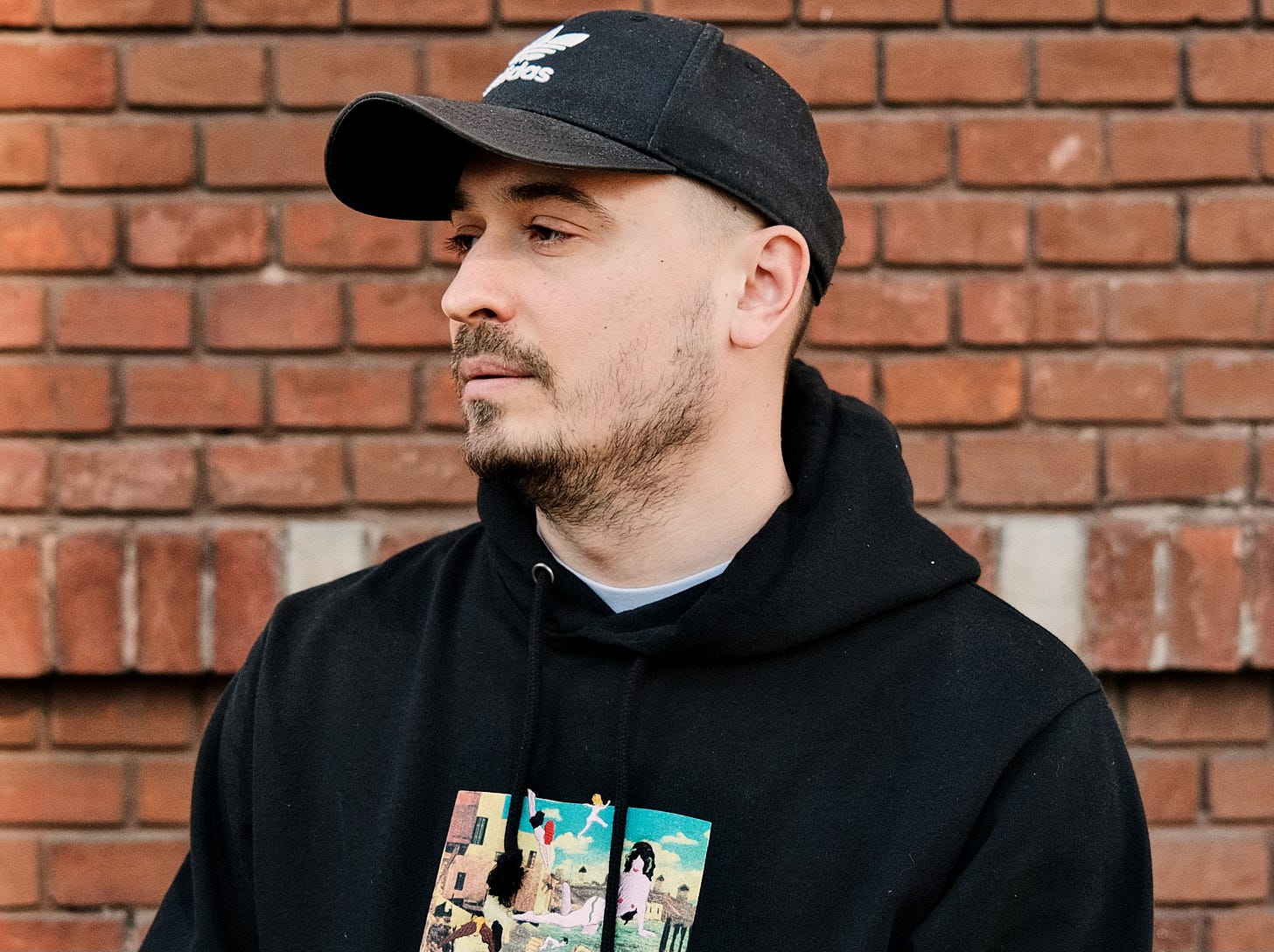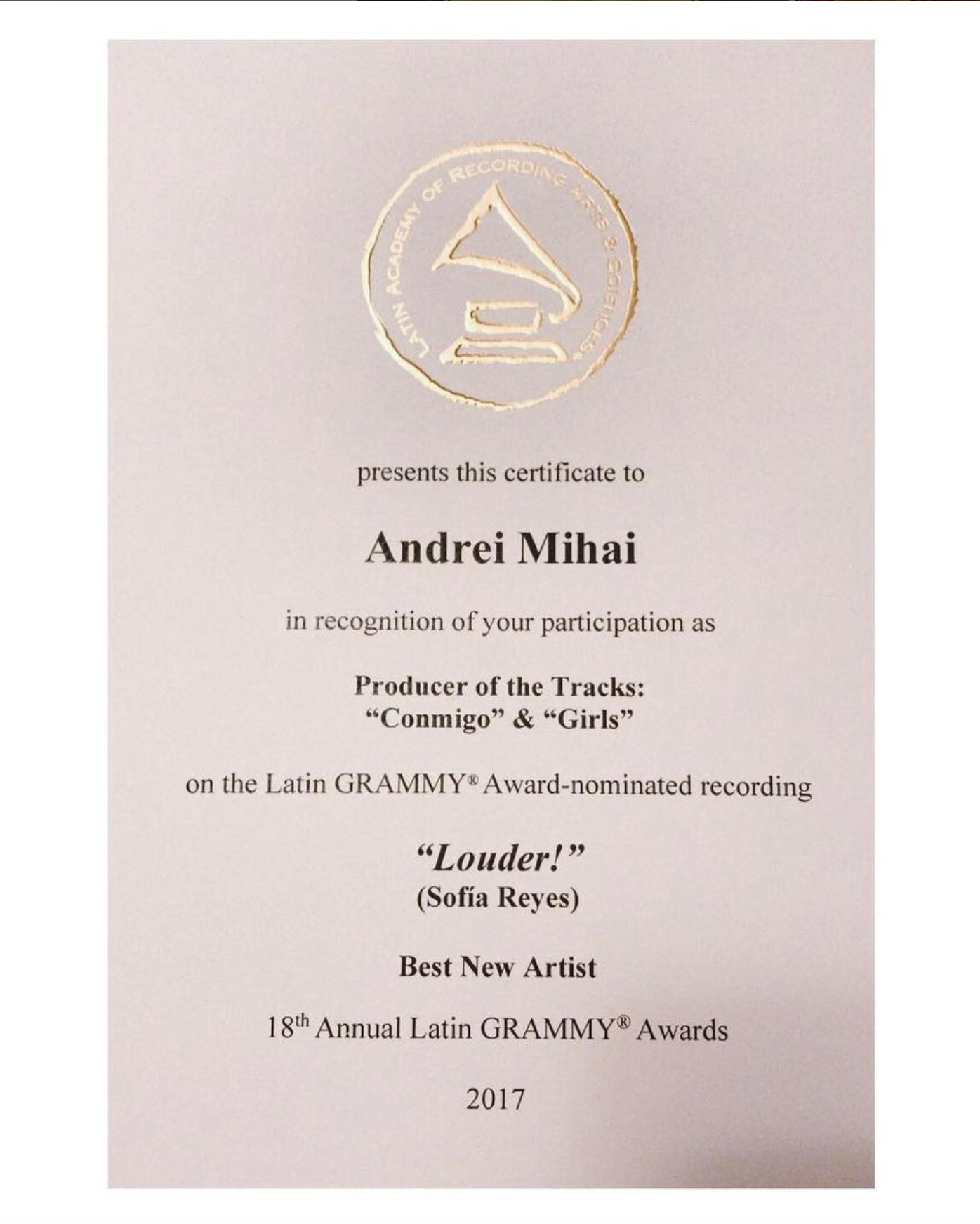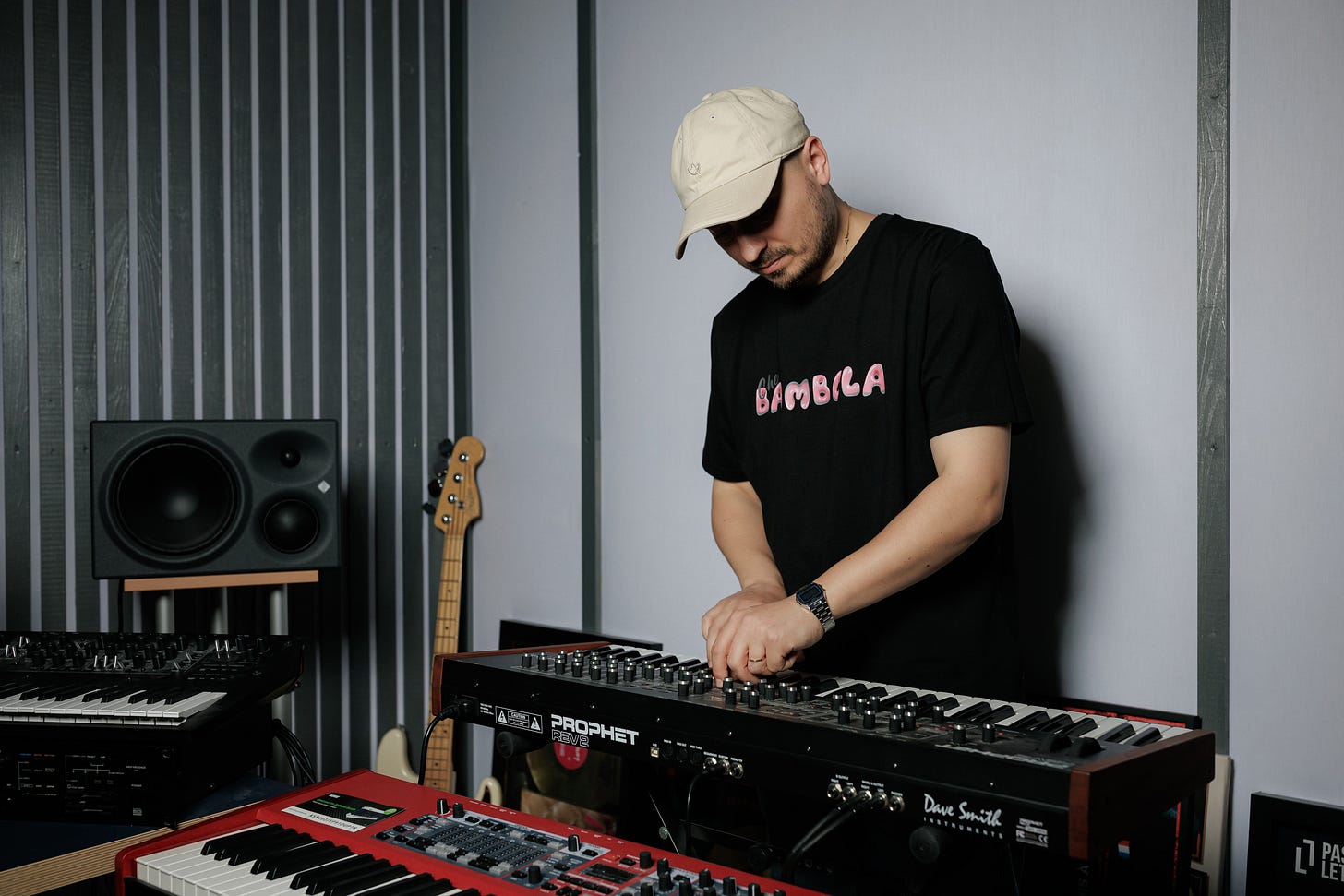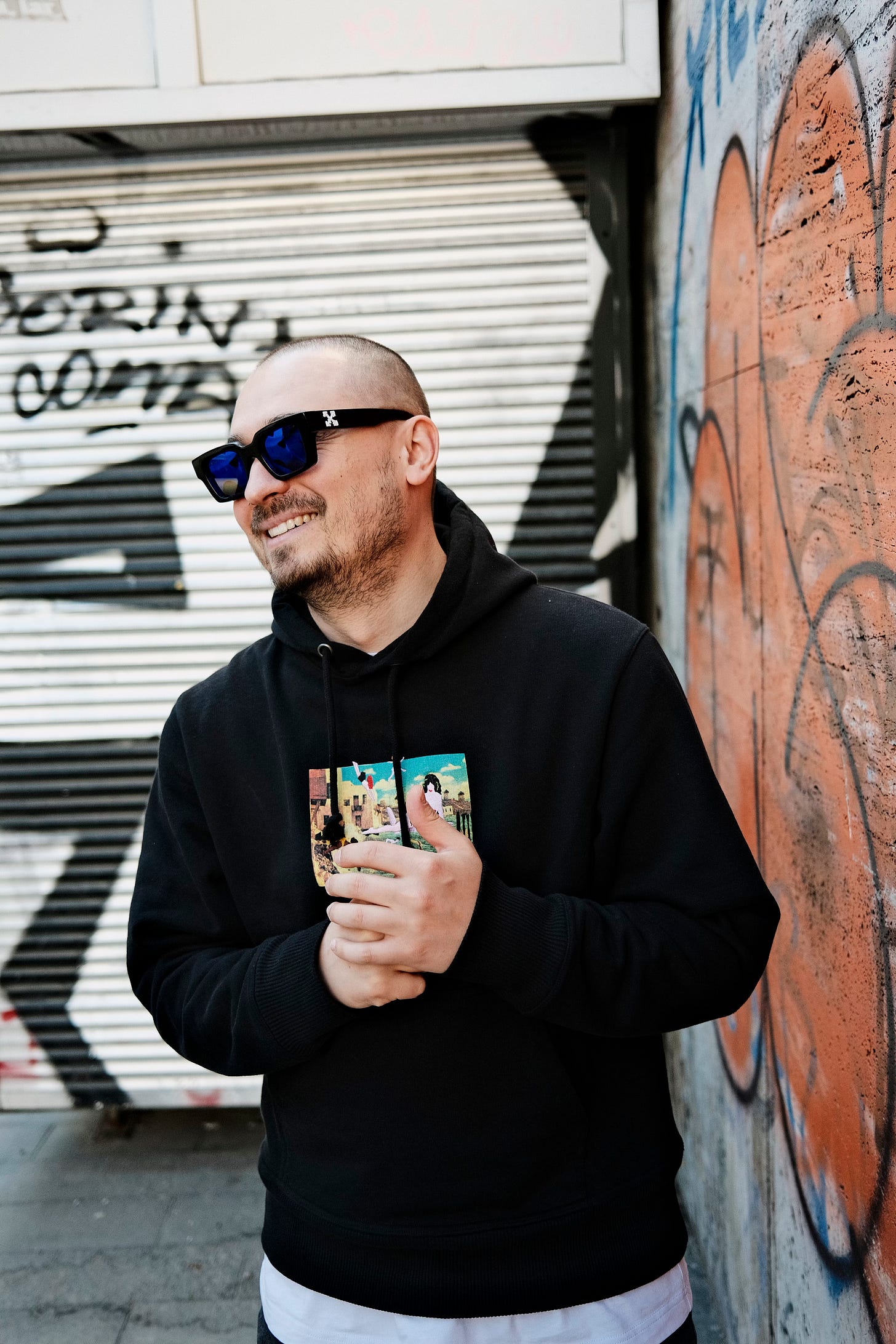Inside Stories: toka's Recipe For Getting a Grammy Nomination and A Handful of Gold Awarded Radio Hits
Andrei Mihai aka toka aka Shoeba shares his story as a music producer who's been nominated for the Latin Grammy awards and also has reached Gold for a few radio hits he produced.
Being a successful music producer involves a lot of studio work, a lot of sleepless nights listening to the same kick over and over again until it hits the sweet spot called “perfection”. A lot of coffee, a lot of VSTs’ loaded into your music software, countless hours for fine tuning… Or maybe there’s an easier way!? One that involves just having fun, just listening to music, taking inspiration from the small daily events that shape your life as it is and eventually translating your feelings into rhythms, 4/4 patterns and uplifting grooves.
Andrei Mihai aka toka aka Shoeba is an artist by definition. A Latin Grammy Awards nominee, Andrei has worked with quite a lot of artist from the “big league”, exploiting his chameleonic producer skills to the maximum. As part of the infamous Shoeba project or as toka, his solo project, he pushed the dance music boundaries into fresher sonic territories with smash hits that gathered tens of millions of streams worldwide. At the same time, Andrei accepted challenges: working with debut artists like Antoniu is rewarding; not for the artist ego, but for the soul that drives his creative force in creating quality music.
This is why we sat down with Andrei and asked him to tell us his story: right from the beginning of his music career to working with A-List artists, from working with a major label to taking the difficult DIY path, all spiced up with tips and tricks from his reach experience as a producer. It turned out into a truly inspirational story and you’re all invited to dive in!
When did you realize that music is your calling in this life?
It’s a question with a lot of background but to put it briefly, I fell in love with music when I first listened to Michael Jackson while I was in kindergarten. I didn’t know what it took to put together a song, I didn’t know anything about its elements, it was just a song, the whole thing hit me. Later when I was 8 I came across a demo software called HipHop eJay 3 where I could create my own songs by choosing “blocks of sound” and placing them like Legos one on top of the other and baam...I was hooked for life I guess :))
Fast forward to my University years, it was during my 4th year of Mechanical Engineering, when I had only four more exams to take before my bachelor degree and it hit me again: I could never give my all to a nine to five job so I made a life changing decision: left engineering behind and followed my dream of producing and creating music.
For me it was hard work, consistency, professionalism, being friendly and humble and trying to be the best person I can be.
In a world where access to music, production gear & software and many more music related stuff is at a click of a button, what does it take for an artist to stand out?
Indeed, everything is at your fingertips nowadays, you can create a song in the subway during your commute, or in the back seat of your car, but what I found to be more important is what you create. It’s about those 10000 hours, constantly improving your craft and your sound, finding your drive, your pace and self motivation. Endurance is key, as a producer you’re always learning, you’re always exposed to thousands of songs and sounds going live on the internet, social media etc. You’re never “the best”, it’s a perpetual process of getting better, learning from the artists you work with, getting inspired by the people you work with and being open about what you put out in the world through your creations. For me it was hard work, consistency, professionalism, being friendly and humble and trying to be the best person I can be. Maybe nowadays things have shifted to other qualities such as tiktok followers and social media virality, and sure, you can “fabricate” an artist like that as well...but you will always need quality professionals behind the scenes to make that happen. Nobody can take away your craft and what you have acquired as skills, but an app is just an app that today can make you “stand out” and tomorrow can be dropped because of other interests and all your “numbers” are gone.
My advice to artists that are planning “this marathon” is to also put in the work to back up those numbers with some substance, it will stay with them forever ;)
Your producer alter ego is a super versatile one, jumping from latino to dance music with ease. Yet, you have a Grammy nomination for a Latino act (Sofia Reyes). Are there any elements in your sound that one can find in your electronic productions as well as the pop ones?
Indeed, I was lucky enough to have the chance to produce multiple styles and get creative with a broad array of sounds and concepts. When you decide to become a producer in the Pop scene, you find yourself mixing styles and sounds quite a lot and that is a good thing in my opinion as it pushes your boundaries and gets you out of your comfort zone.
I think some of my core characteristics as a producer have been shaped by my influences: Michael Jackson (Quincy Jones), Timbaland, Pharell...to me, the things they have in common are groove, rhythm and a certain “heaviness” and fullness to their sound.
So, I was always fascinated by the drums and what the bass does in relation with other rhythmic elements so that you get the drums and the song to “hit hard”. Unfortunately it’s not always (if not most of the time) possible for me to “go crazy” with my productions because when you’re looking at songs that are meant for radio airplay, they need to be “not that wild”, but I always try to insert a little something of my “special sauce” haha.
But no matter how many doors open for you or how many people you know, in the end it’s about the song, it’s about the work and dedication you put into your craft...that’s what brings artists to you.
How did you end up working with A-List artists?
I guess I’ve always projected that vision in my mind. I’ve always dreamed of putting my music out there for people to listen to, and backed that all up with constant work and self development and objective critic. It was so that, while in high school, I met with Dorian (with whom we later put together SHOEBA as a duo) and we started “doing our thing” I guess. I would work on beats, ideas and he would write, rap and sing to them, sometimes it was vice-versa. So much so that at one point he ended up around the recently formed (at that time) independent production label HaHaHa Production. At one point he played some of our songs, then I was also called to meet everybody there and they dropped the bomb that they want us in their team. Another life changing moment, and the rest is history. I’ve worked with almost all the big acts in Romania, then working with world class songwriters opened another world and that’s how I got my first big break through as a producer with a Latin Grammy nomination and two Gold Records in the USA for my work on Sofia Reyes first album
But no matter how many doors open for you or how many people you know, in the end it’s about the song, it’s about the work and dedication you put into your craft...that’s what brings artists to you.
What’s better: signing with a record label or taking the DIY approach as an independent artist?
If you have the possibilities and means of doing so, I would definitely suggest an independent approach to start with. This gives you the freedom of expressing yourself without limitations or matrices around your songs. It also allows you to gather “a crowd” for who you are and at the same time it provides a very important and indispensable learning curve. It gives you the opportunity to become your own critic, it gives you the opportunity to grow as a professional and learn from your mistakes and your mistakes only. If you are going to release a song and it won’t reach the audience you were hoping for, maybe it’s back to the drawing board, maybe you need to become better.
It’s a different approach from when an A&R at the label tells you that you need a better song, or you need to change this or that...most of the time it’s hard for artists to take in this kind of feedback but when you “burn your own fingers”, you’re more motivated and you actually prepare yourself for the bigger step which is (at one point) signing to a label, or working with different independent partners that together offer the same principles.
How is toka different from your other music project, namely Shoeba?
“toka” is one of my many creative expressions when it comes to music. “toka” is approaching mainstream dance/club music with a different twist every time. “toka” is an alter ego that is not afraid to merge sounds and genres and gives me a certain freedom of releasing whatever crazy idea I have, be it pop, dance, club music or a mix of all those combined. Some songs tackle radio airplay, some songs tackle your playlist while you're in your car and you want to max out your speakers...it’s me doing the dance music that I feel like doing.
“Shoeba” is a different breed altogether. Being a duo with me and Dorian Micu, it basically represents all our musical journey together, all our common denominators but also all our unique characteristics as artists in one place. “Shoeba” has more of an introspective vibe at its core, it’s the kind of music you want to listen to when at a private party or event with heavy but refined bass filling up the room, but also the kind of music that goes well with a fine drink and a smooth sound system.
The Shoeba project: how did it start? Why did you put it on hold?
“Shoeba” started unknowingly (and I’m gonna sound old saying this ) 20 years ago when I met Dorian. We were just kids connected by our common love for music and basketball. It’s more than “Shoeba” for us, we basically started this musical journey together, me as a producer and him as an amazing singer and songwriter.
2017: first two songs of Shoeba were created in two days, just us having fun in the studio, without expectations. One of them was “Signals”. The song came out in 2019 and, as I told you, it’s always about the song. It took two years for the song to get to the “right ears”, sometimes it takes three, sometimes five...but in the end, if the song is good, it will have its place out there. And yes, we were lucky enough that our first release “Signals” ft Todiefor & Romeo Elvis was a big radio hit in Belgium and France, and it brought us Gold Records in both countries. Although a radio hit, the core elements and sounds all come from a more introverted space in our creative process, we just used them in a different way.
Then in 2021 we had another release featuring top DJ MATTN, but this time in the role of a vocalist. It was a song that merged MATTN’s more EDM / dance influence with our “Signals” soundstage. The following years we followed up some interesting edgy releases with our friend Todiefor.
Why put it on hold? After the success of “Signals” everybody wanted more “Signals” but different. They put a stamp on what Shoeba should sound like and if it’s not that, then it’s not Shoeba. We also had a lot of featured artists on our releases and that always leads to merging sounds, styles and genres and we felt that the heart of Shoeba was kind of fading in all this madness. So we decided to clear the air a bit and give us some time to bring our project back to its core. Cool stuff is coming up so keep an eye on us ;).
There’s a nostalgic 90’s - 2000s’ dance music vibe to your productions, almost like a sound signature. Name 3 artists who serve as an inspiration for your work.
Yes, as far as “toka” goes, I’m always happy to bring in at least some of the sounds that influenced me growing up. On the dance side I’ll try to keep it concise: Faithless, Benny Benassi, Claude VonStroke, Fedde le Grand, David Guetta
Bambola, your collab with Alexandra Stan, became an instant hit: tens of editorial placements on Spotify, thousands of playlist adds, saves and so on. Can you pinpoint the things that made it a viral hit right from the start?
As a producer I constantly do research music wise, I dig for “undiscovered” gems or classics that could inspire my creativity. So when I stumbled upon Fred Buscaglione’s song from the 50s, “Bambola”, I instantly knew I had to do something with it. After working on the instrumental, I was lucky enough to have Helen and Katarina write an amazing topline with a killer hook. Then together with my good friend Lucian Naste we’ve recreated the whole sample of Fred’s song so although it sounds like a classic it’s all been recreated now. But the best thing you can do with a good song is have an amazing artist sing it, and Alexandra Stan really made it her own, her interpretation is exactly what the song needed. So I would say that a great idea with great songwriting and a great artist made this a great song.
In this context, give us the recipe of creating instant hits!
A great instrumental hook, a great vocal hook, great interpretation and visibility/awareness.
A quick tour into your studio: 5 of the most used / important music gear in your studio...
Oh...how I would love to have infinite gear to use ...good thing I have common sense or otherwise I would spend everything on studio or music related stuff. My top 5 most important gear would have to be my Neumann KH310 speaker system with the sub, my Nord Electro 6 HP, my Neumann TLM107 mic together with the vocal chain, my Korg Minilogue XD and of course my M1 Macbook Pro
.
We’re still waiting for a toka solo album :) Any plans on this one?
I haven’t thought about an album yet. I feel that I still have lots of songs that I would love to put out and explore with different styles, mixing genres and all that before I commit to an album. It may come at one point, I’m not saying no, but for now I’m focused on releasing singles.
What artists would toka include in a main stage electronic music festival mix?
Benny Benassi, Sidney Samson, Curbi, Yung Felix, Damien N-Drix, Yes Yes, Dom Dolla, Biscuits, toka of course, and the list can continue haha

